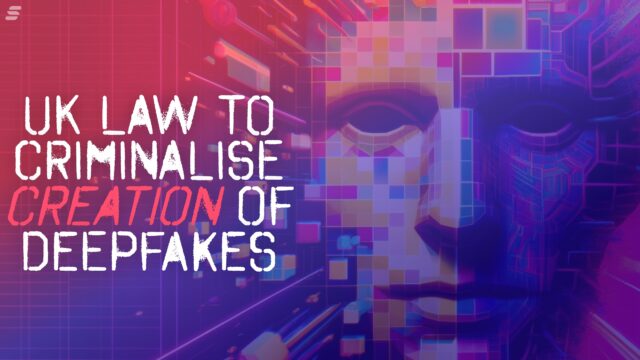Taiwan’s government has proposed prison sentences of up to seven years for the production and distribution of deepfake porn content.
The move would make Taiwan the latest country or region to officially recognise the dangers of emerging deepfake technology — including putting images of individuals into videos they were not involved in, to create ‘fake’ videos — in its laws.
It follows the arrest of an online influencer in Taiwan who allegedly made the equivalent of hundreds of thousands of dollars by making deepfake porn videos using celebrities’ faces.
On 17 November 2021, the Taiwanese Ministry of Justice proposed a maximum prison sentence of seven years for the crime of producing and distributing deepfake porn images with a profit motive, reported Taiwan News. For deepfake porn crimes with no payment element involved, the maximum sentence would be five years behind bars.
The proposal also included a new revenge porn-related sentence guide: a maximum of two years in prison for distributing a porn video made with a partner without the partner’s consent.
Over the past few years the development of deepfake video technology has resulted in more potential for the malicious creation of ‘fake’ porn videos. An evolution of the practise of photoshopping public figures’ faces onto still images of porn actors, they can been used to insert faces into similarly explicit videos. Deepfake videos can also be used to create ‘fake’ revenge porn.
Deepfakes became a hot topic in Taiwan in 2021, when a YouTuber named Xiaoyu was arrested for allegedly making and selling deepfake porn videos featuring the faces of over 100 politicians and celebrities. Some of the Taiwanese politicians whose images were allegedly used in the deepfakes were among those calling for the Ministry of Justice to toughen laws around the issue.
If the laws pass, Taiwan will follow South Korea in introducing tough deepfake porn video legislation. The faces of many K-pop stars have been used to make deepfake porn videos, leading Seoul to attempt to crack down on the problem. In 2020, laws carrying maximum prison terms of five years for deepfake porn-related crimes were passed in South Korea.
South Korean authorities have had limited success in dealing with the rampant deepfake problem, despite the new legislation. With many deepfake videos created and stored on computer servers outside the country, it has been tough to prosecute alleged offenders. China, too, has moved to crackdown on deepfake images and videos.
Earlier in 2021 concerns were raised in the West about the release of an app that claimed to let users create deepfake porn videos in a few simple steps.
The app, which SEXTECHGUIDE is not naming so as to not provide it with traffic, allowed users to quickly upload a photo of a face and apply it to porn videos in the app’s video library.
Read next: TikTok joins the rush to ban deepfake videos









Leave a Reply